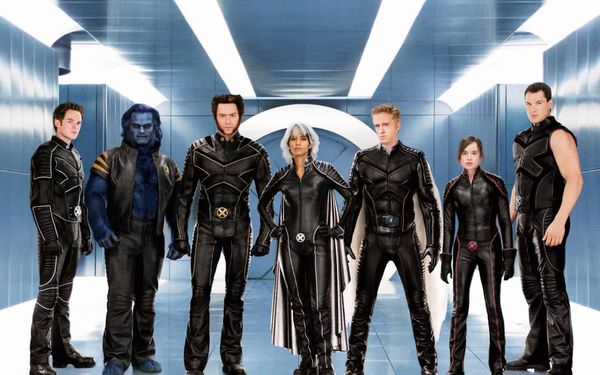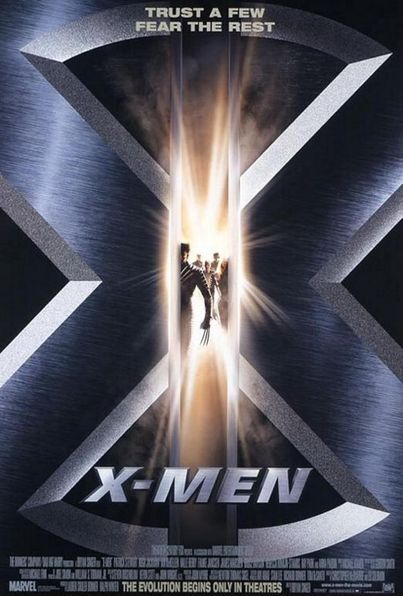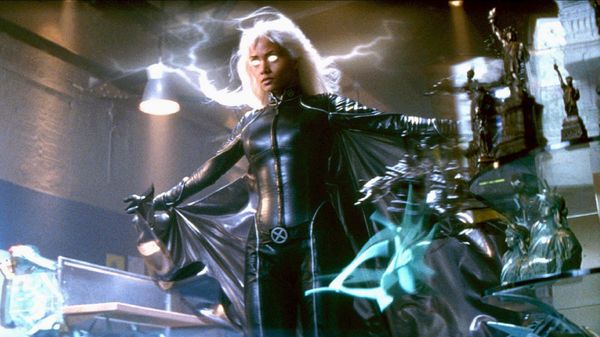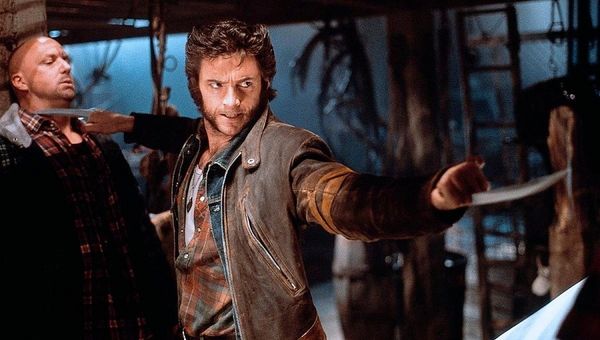X-Men (2000)

X-Men is a groundbreaking superhero film that played a pivotal role in shaping the modern landscape of comic book adaptations. Released in 2000 and directed by Bryan Singer, the film introduced audiences to a world where mutants—individuals with extraordinary abilities—struggle for acceptance in a society that fears and discriminates against them. Starring a talented ensemble cast including Hugh Jackman, Patrick Stewart, Ian McKellen, and Halle Berry, X-Men combines action, drama, and thought-provoking themes, laying the foundation for a successful franchise.
The story centers on the conflict between two groups of mutants: the X-Men, led by Professor Charles Xavier (Patrick Stewart), and the Brotherhood of Evil Mutants, led by Magneto (Ian McKellen). Professor Xavier advocates for peaceful coexistence between humans and mutants, believing in integration and understanding. In contrast, Magneto believes that mutants are superior and should dominate humanity to ensure their survival. This ideological clash drives the film’s narrative, highlighting the broader themes of prejudice, acceptance, and the struggle for equality.

At the heart of the film is the character of Wolverine (Hugh Jackman), a reluctant hero with regenerative healing powers and retractable claws. Wolverine’s journey serves as an entry point for audiences into the world of mutants. Initially, he is a loner, grappling with his past and identity. However, as he becomes involved with the X-Men, he begins to form connections and discover a sense of belonging. Jackman’s charismatic performance helped establish Wolverine as one of the most iconic characters in the franchise.

The film also introduces key characters such as Storm (Halle Berry), Cyclops (James Marsden), and Rogue (Anna Paquin), each with their unique abilities and personal struggles. Rogue, a young mutant who absorbs the powers and memories of others, faces her own challenges with identity and belonging. Her relationship with Wolverine adds emotional depth to the narrative, showcasing themes of friendship and acceptance.

X-Men is notable for its mature approach to superhero storytelling, addressing social issues such as discrimination and intolerance. The film draws parallels between the struggles of mutants and marginalized groups in society, making it a relevant commentary on prejudice and acceptance. This thematic depth resonates with audiences, elevating the film beyond typical action fare.

The visual effects and action sequences in X-Men were groundbreaking for the time, effectively bringing the characters’ powers to life. From Wolverine’s ferocity to Magneto’s magnetic manipulation, the film showcases a variety of abilities in an engaging manner. The action is well-choreographed and serves to advance the story rather than overshadow it, maintaining a balance between spectacle and character development.
The film’s pacing is well-executed, with a mix of intense action and quieter, character-driven moments. The screenplay, adapted from the comic book series by Stan Lee and Jack Kirby, skillfully weaves together various plotlines and character arcs, culminating in a climactic battle that tests the convictions of both Xavier and Magneto.
Upon its release, X-Men received positive reviews from critics and was a commercial success, grossing over $300 million worldwide. Its success helped pave the way for future superhero films and established a more serious tone for the genre, influencing subsequent adaptations. The film’s legacy continues, with numerous sequels and spin-offs, solidifying the X-Men as one of the most enduring franchises in cinematic history.
In conclusion, X-Men is a landmark film that combines action, character development, and social commentary in a compelling narrative. Through its exploration of prejudice, identity, and the quest for acceptance, the film resonates with audiences and invites reflection on broader societal issues. With strong performances, innovative visual effects, and a rich thematic depth, X-Men not only launched a successful franchise but also set a new standard for superhero films, making it a significant entry in the genre’s evolution.











